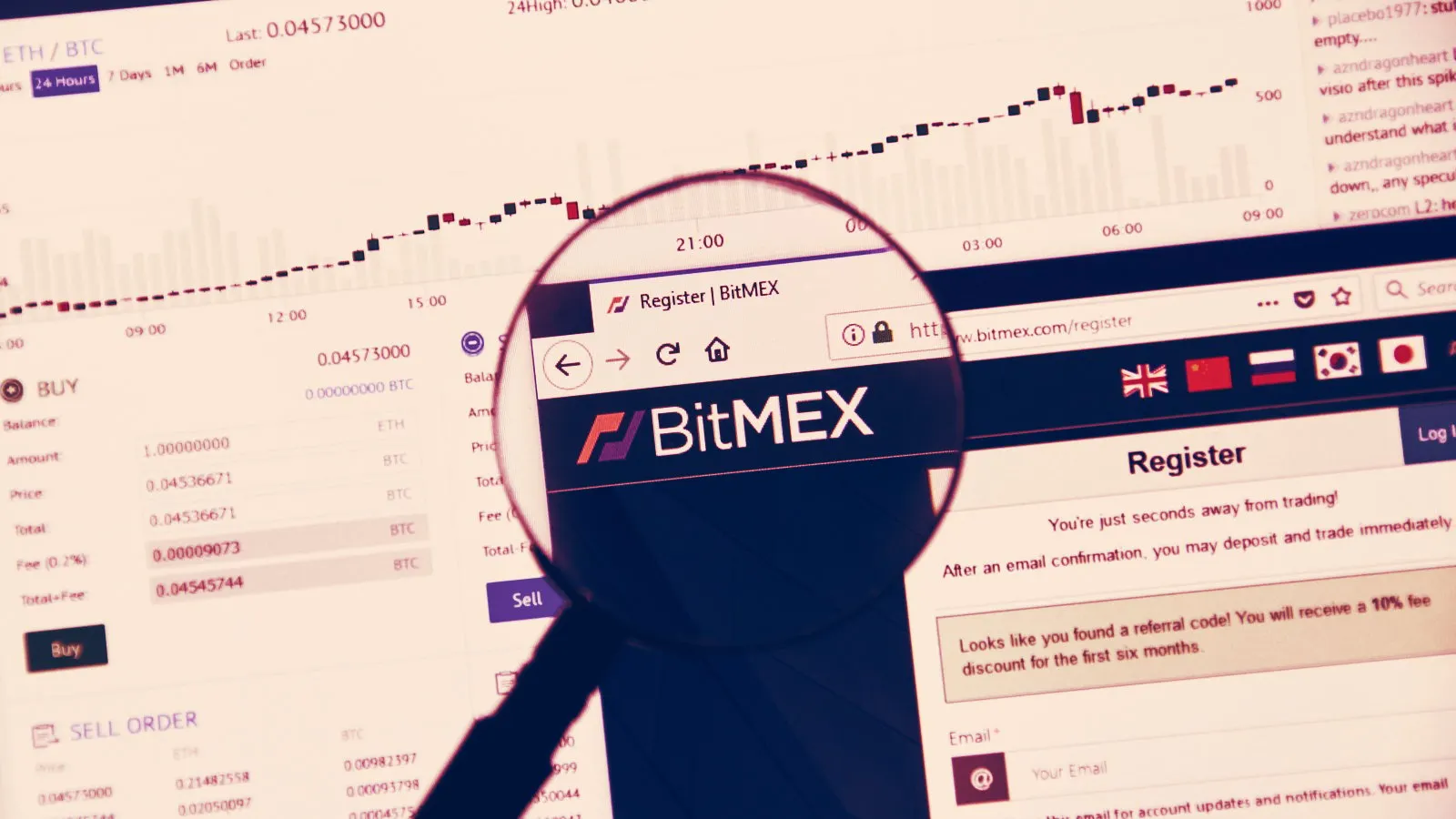In brief
- US court action on crypto exchange BitMEX has been termed as being good for the DeFi market.
- But regulatory troubles remain, said industry experts.
- Peer-to-peer marketplaces have faced legal troubles in the past, meaning DeFi businesses are not fully safe from legal troubles.
US court summons for the three co-founders of Bitcoin derivatives exchanges BitMEX saw mixed reactions in the crypto industry—particularly that of the demise of centralized exchanges (CEX) and the rise of their decentralized counterparts (DEX).
However, some say the growing decentralized finance (DeFi) market is not wholly out of the regulator’s reach.
Adam Cochran, a partner at investment firm Cinneamhain Ventures and head of strategy at privacy browser DuckDuckGo, said the US "Bank Secrecy Act" (BSA) meant DeFi apps could see trouble ahead.
“The BSA essentially says if you in any way knowingly, purposefully or through failure to meet industry standards, support, enable, facilitate or profit from money laundering, we're going to throw the book at you,” noted Cochran.
Almost all DeFi apps operate as a peer-to-peer design, meaning all trades, transactions, and transfers are done with another platform user instead of dealing with a company’s internal trading desk. This makes a truly decentralized market, where any activity is not dependant on the status of a DEX’s developers or founders.
But that’s only theoretical. “The DOJ has pursued individuals on sites like Localbitcoins.com and Paxful with having been involved with facilitating money laundering or failing to comply with preventative measures,” explained Cochran. While both the sites he referred are marketed as peer to peer, their users have faced legal action.
“The only thing that matters is do you make it easier for criminals in the US to exchange monetary instruments without applying the US standards of KYC/AML,” added Cochran. “You can find that developers with admin keys, users who create front-ends, companies hiring individuals to work on the protocol and others who enable or profit from the contract, to be in violation of the BSA.”
Cochran wasn’t alone in raising concerns for the burgeoning DeFi market. Bill Barhydt, co-founder of crypto wallet Abra, shared the sentiment. “DeFi services are not sufficiently decentralized today to have no central off switch. That means the companies behind them are at risk. Oracles are another problem,” said Barhydt.
He further cautioned, “This is a warning shot for defi service providers who think that the regs don’t apply to them. That’s pure nonsense. Lawyer up now.”
The argument Cochran and Byrhart made is similar to how the entities or individuals behind peer-to-peer darknet marketplaces have been previously arrested, and/or faced legal action, in the US. Wildly popular web domains, such as Silk Road, have been seized as well, meaning regulatory clampdown is capable of effectively killing off user activity without even targeting the actual tech.
So while DeFi proponents may be excited at the prospects of their favorite apps gaining global acclaim, the regulators might just spoil that party.
Daily Debrief Newsletter
Start every day with the top news stories right now, plus original features, a podcast, videos and more.

